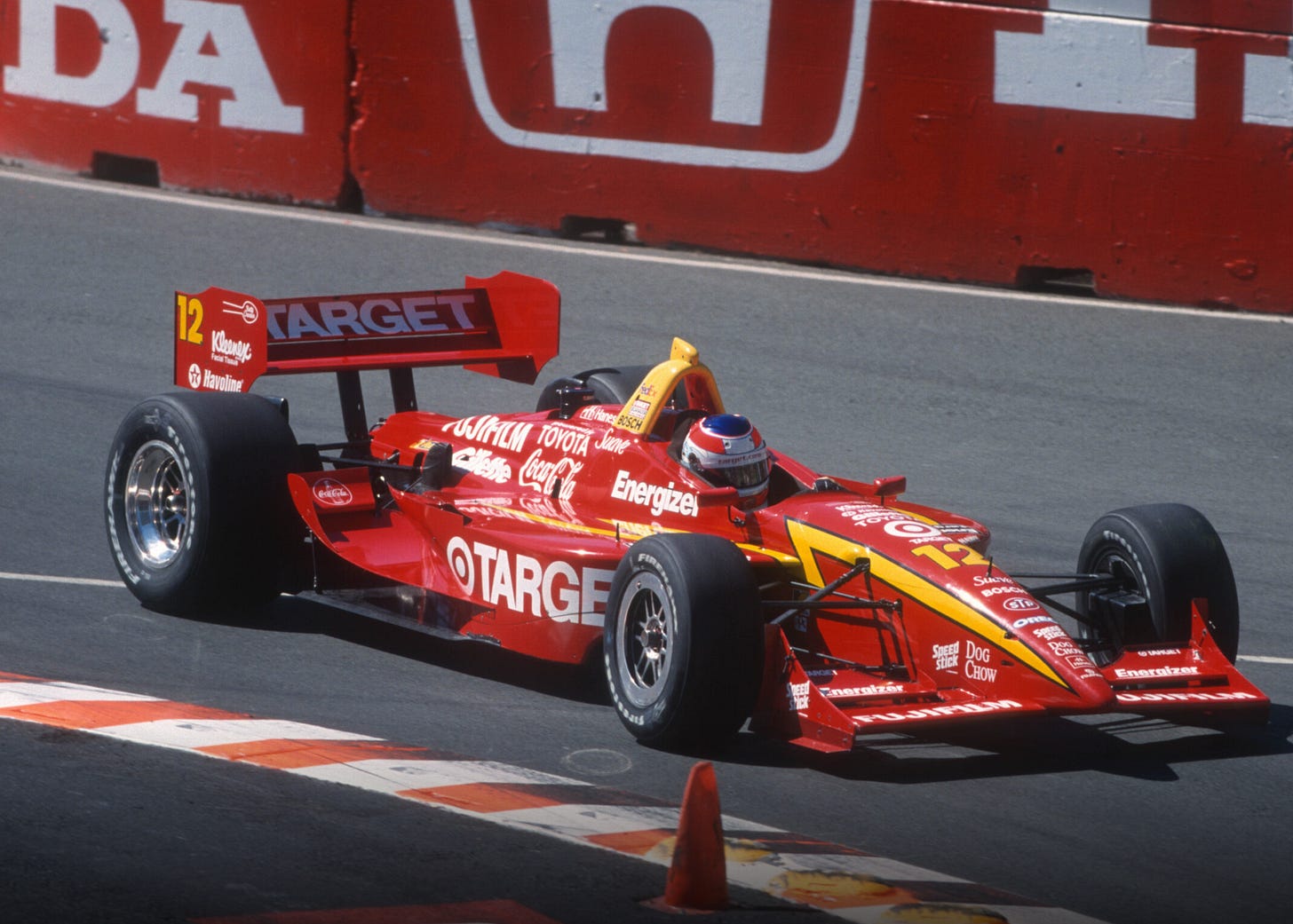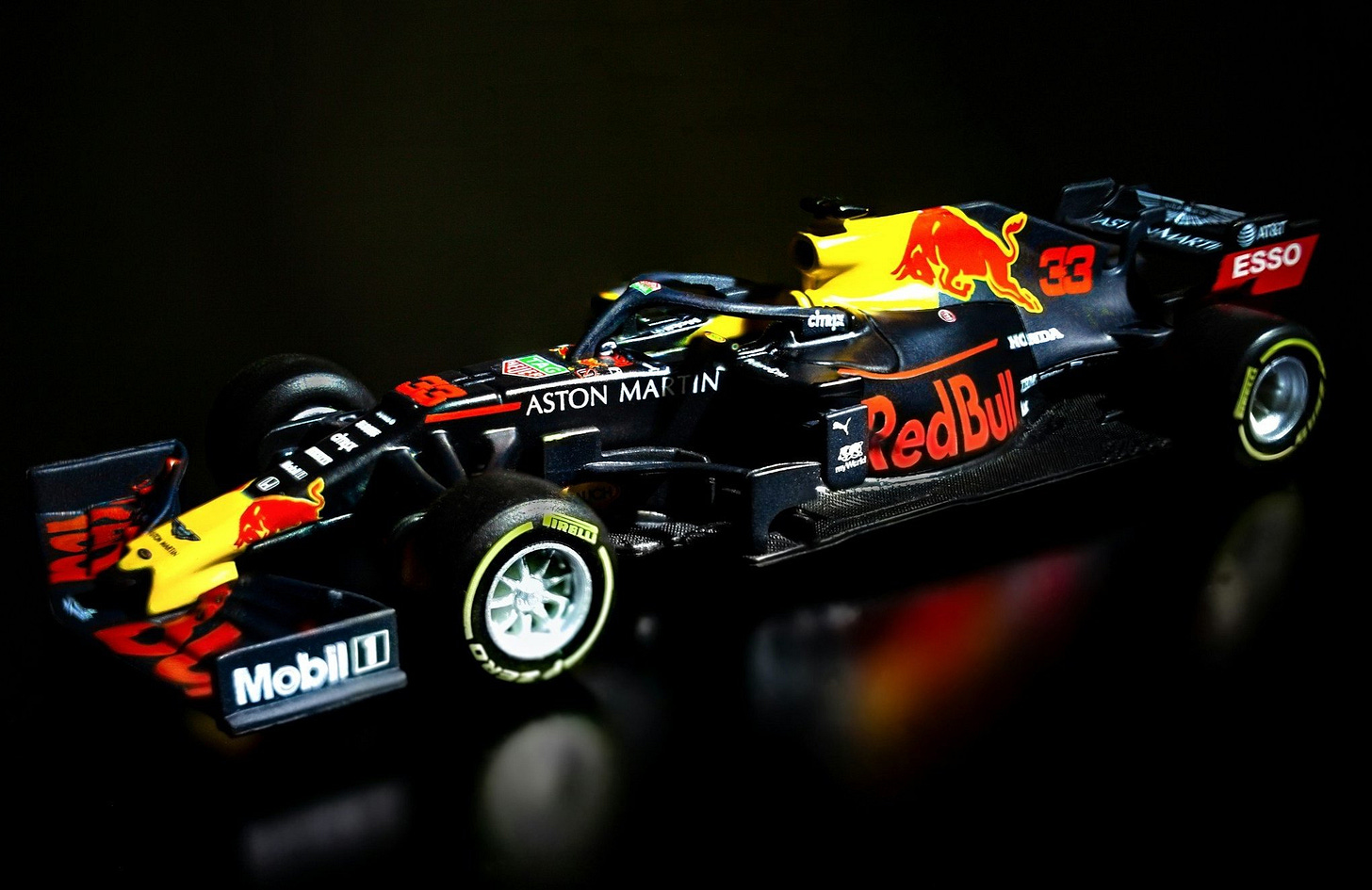Why Work in F1?
Thoughts for anyone considering a career in motorsport.
Have I loved working in F1? Should you want to? Tougher questions than you might think.
If you’re reading this then you are likely to have some interest in the sport and may have wondered what it would be like to work in F1. You could have come across Instagram feeds full of exotic locations and selfies with celebs, posted by team members and thought: I could do with a bit of that glamour in my working life.
You probably won’t be surprised to learn that not many of the hundreds of staff making up an F1 team get to hang with celebs, have dinner with the drivers or sip cocktails in cool Miami bars. For the majority their working reality is an office in a business park, mostly 5 days a week.
F1 is hard to get a job in. No, I mean really hard. When I started out as a wide-eyed aerodynamicist, there were tens of high-quality, relevant people applying for the jobs. By that I mean higher degree educated in something closely related to aeronautics from a good university, evidence of passion for the sport, the right kind of attitude and able to work (most probably) in the UK. As a graduate I might be up against another 20 people like that, any of whom could have. been chosen instead of me. Intimidating…
Now, there are probably 4-5 times as many positions available as when I started, simply as a result of the teams being bigger. Nevertheless, I would probably be up against more like 400-500 relevant candidates! Teams will regularly get over a thousand CVs for every technical position - the same is true for many other disciplines like IT, finance and, in particular, marketing.
So why is it so popular and why should you consider it (or not)?
Reasons For
Let’s start with: purpose.
Many jobs are rewarding in their own way. Maybe you get great advancement potential, awesome benefits, feel really supported and you love your colleagues. But for many people there is still a sense of “why?” about their workplace. Simon Sinek’s great book - Start With Why - describes this phenomenon brilliantly. Businesses that lack a core purpose not only alienate their potential customers but also their staff. Who wants to work in a place that exists purely to make shareholders more money?
No such problem in F1.
Everyone knows and understands they are there to make the car faster. It’s a mantra in every team - “yes, but does it make the car go faster?” That’s because everyone’s lives, reputations and workload are intrinsically liked to the performance of the car. Doing well in the championship? The sponsors will be beating down your door. Upgraded parts meant you had a good last race? The engineering team sleeps easier that week.
It’s so embedded in the common psyche it is taken for granted but other businesses in other industries just can’t deliver that level of focussed motivation.
The perks are good too. If you’re a racing fan there will be chances to meet the drivers, free merch and even the possibility of getting to a race. Contrary to popular opinion you aren’t going to be able to hand out GP tickets to your friends and family like candies. Tickets remain expensive and hard to obtain, unless you are on the cusp of paying a team $50m in sponsorship, in which case you can expect to be treated like royalty.
Senior-level salaries get quite exciting in F1. I qualify that with the rather vague “senior-level'“ for reasons I will discuss later but in general the top people get paid well. Cost caps and other financial pressures aside, technical team leaders and other heads of department can command salaries well in excess of the wider engineering industry. That is partly traditional but mostly to do with the value of recognised, experienced people. Teams want to hire in known good people from other teams and will pay them to move, which pushes up their market value.
Reasons Against
Ok I need to start with some caveats.
Everyone’s experience is different and one person’s excitement is another’s definition of stress. If I say that the job is stressful, that might not be the case for someone who thrives on pressure. Equally, the day to day reality of a race team mechanic is wildly different from a factory-based management accountant. So while I can point out some potential downsides, they might not be true for everyone.
Also, I have been around the business for a long time. Yes I have seen a lot but my understanding of what it’s like as a young person starting out in today’s F1 is limited.
That said, I’ll start with: pressure.
The flip side to having a common purpose is that there is a shared expectation of success. No team goes into each year’s championship saying that they want to come 7th. There is always a plan for world domination - if not this year then next, or the year after. Yes, we might be slow now but just watch us in the next 2-3 years. Clearly not everyone can achieve success so that leaves a lot of teams with dented egos and disappointed sponsors. The pressure to do better is relentless. When you are doing well, the pressure to stay there is even greater.
Good managers and leaders try their best to limit this pressure and focus it into motivation rather than stress. But it’s not easy, and when the car is doing badly, everyone feels it. The reality is that some people react to that well and some others deal with it badly. Really badly.
Another enemy of the relentless nature of the business is completion. Nothing is ever finished, perfected, completely ready - there is always something that can be made better. Projects that seemed super-important suddenly get dropped and replaced with new, more promising avenues. Months of work can be discarded because there is no time to dwell on something that isn’t going to perform quickly enough.
I always ask interview candidates whether they feel they are one of Belbin’s completer-finishers. If you can’t stand to see a job half done, hate being called away in the middle of something, or can’t sleep if you haven’t finished that report, you might struggle in F1. Remember the question: does it make the car go faster? That trumps your unfinished report every time. We have hired you because we need you on the right project, not plugging away at the wrong one. I can’t emphasise enough how important this feature is of F1 working life and how much some people hate it.
Salaries again.
Yes, salaries get a lot better as you get promoted or move team but they don’t start very well. We live in a world where city banks and firms of lawyers are paying astronomical sums to new graduates. Set alongside that, F1 has a stringent cost cap which includes many departments’ salaries. The realities for most teams is that they can’t afford to pay their biggest cohort - the junior starters - princely sums up front. Many interviewees are shocked to hear what they will be paid compared to other businesses in similar industries. Why should I come and wok for you when I can get more working for that road car company?
Perversely, the bigger and more successful the team, the lower the starting salary for junior staff - I grossly generalise here but in my experience it is true. That is simply down to market forces; the more attractive the team is to a new hire, the less they know they need to pay to attract them. Despite the large number of applicants, teams end up competing for the same candidates and poor performing teams can only compete by raising their salaries.
Sorry, but glamorous it is definitely not.
Less than 10% of a racing team will actually go to the races and I can tell you that being at races is about 10% as glamorous as you might think. Of course, it’s important not to take things for granted - F1 races are a spectacle of speed and excess which attract glamorous people. For most of the people working though, it is just another day at the office.
If you want face time with celebrities you want to work in guest relations for example. They meet and greet team guests, host and go to parties and generally schmooze the great and the famous. Sounds like heaven? Well they are some of the hardest working people in the industry. Imagine getting off a flight, maybe changing time zones, and having to look good, be fascinating, charming and with boundless energy for four days. 24 times a year. Brutal. I can barely manage to be vaguely civil for more than 30 minutes at a time.
And for the more than 90% of the team the reality is an office and a routine. Some facilities (or ‘technology campuses’ to give them their grandiose titles) are fantastic. The new Aston Martin TC is really top-spec for example. But it is still an office. We try to make the environment as F1-like as possible (think pictures of drivers, screens showing races…) but there is an inevitable monotony to coming into work after a while.
I’m in danger of getting carried away with the negatives but let’s be realistic. No job is endlessly fascinating, nor is it likely to let you pursue your dreams whilst paying you billions to do so.
Should you want to work in F1? My advice would be to focus more on the job and less on the business. Loving motor racing might get you in the door but it doesn’t make you want to go to work. What will you actually be doing day after day? Sounds like you will love that? Then absolutely go for it. You will want to go to work and you get the bonus of being in the most challenging, exciting and rewarding environment there is.







Really like this. I'ts the first time I've see someone of your rank speaking directly.
It’s great to see this kind of insight. I’m glad you removed the sugar coating and media hype, yet still provided enough for people like me to keep moving forward with it. Maybe one day I’ll be able to see everything you laid out!